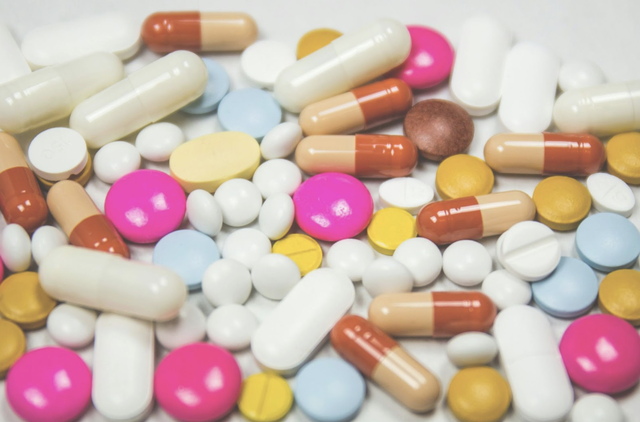Recurrent urinary tract infections (UTIs) are a common issue that we have seen more and more in our practice in recent years, particularly among women. You’ll seldom find a woman who hasn’t had at least 1 UTI in their lifetime, however, recurrent UTIs can significantly impact quality of life. Antibiotics are often first-line treatments for acute UTIs. However, this can be problematic for those dealing with recurrent UTIs due to the frequent disruption of the gut microbiome, as well as the increasing risk of contracting antibiotic-resistant UTI bacteria with repeated use.
The American Urological Association defines recurrent UTIs as “two separate culture-proven episodes of acute bacterial cystitis and associated symptoms within 6 months or 3 episodes within 1 year.”
Emerging evidence suggests that pelvic floor dysfunction may contribute to these recurrent infections. Addressing this dysfunction through physical therapy offers a promising alternative for reducing UTI frequency without antibiotic use, and for alleviating associated symptoms.
This article reviews information about Urinary Tract Infections (UTIs), understanding the link between UTIs and pelvic floor dysfunction, as well as how pelvic floor therapy can help. Recurrent urinary tract infections (UTIs) are common, especially among women, and can significantly impact quality of life. Emerging research suggests that pelvic floor dysfunction and hormonal changes, particularly during menopause, may contribute to recurrent UTIs, making physical therapy an effective alternative to frequent antibiotic use. By improving pelvic floor muscle coordination and addressing voiding dysfunction, physical therapy can help reduce UTI frequency and enhance overall urinary health.
Understanding the Link Between Pelvic Floor Dysfunction and UTIs
The pelvic floor muscles play a crucial role in urinary function. Dysfunction in these muscles can lead to issues such as urinary incontinence (UI) and voiding dysfunction, which may increase the risk of UTIs. For instance, non-relaxing pelvic floor muscles can disrupt the normal flow of urine (think like kinking a garden hose), allowing bacteria in retained urine to remain in the urinary tract and potentially cause infections.
Recurrent UTIs and Menopause
The hormonal changes associated with menopause, particularly the decline in estrogen levels, can significantly affect the genitourinary system. This condition, known as genitourinary syndrome of menopause (GSM), encompasses a range of symptoms, including:
- Vaginal dryness and atrophy
- Increased urinary frequency and urgency
- Dyspareunia (pain during intercourse)
- And notably, recurrent UTIs
Estrogen plays a vital role in maintaining the health of the urogenital tissues. Its decline during menopause can weaken the epithelial lining of the bladder and urethra, impair the pelvic floor muscles, and disrupt the vaginal microbiota, all of which may increase susceptibility to UTIs.
A study published in the Journal of Menopausal Medicine emphasizes that addressing GSM through hormonal therapies and physical therapy interventions can significantly alleviate these symptoms and reduce the risk of recurrent infections.
How Can Physical Therapy Help in Managing Recurrent UTIs?
Physical therapy aims to improve pelvic floor muscle function, which can:
- Enhance muscle coordination: Proper coordination of pelvic floor muscles ensures complete bladder emptying, reducing residual urine where bacteria can thrive.
- Address voiding dysfunction: Therapies targeting voiding dysfunction can prevent involuntary contractions of the external urethral sphincter during urination, promoting a healthier urinary flow.
- Reduce dependence on antibiotics: By addressing the root cause of recurrent UTIs, physical therapy may decrease the need for antibiotics, mitigating the risk of antibiotic resistance.
Physical therapists can provide treatment such as:
- Perform manual therapy on overactive pelvic floor muscles to improve voiding dysfunction and coordination
- Education on proper bladder habits and hygiene to reduce UTI frequency
- Provide referrals to menopause specialists to help sort out any hormonal dysfunction that may be leading to decreased health of urogenital tissues
Get Pelvic Health Physical Therapy
Recurrent urinary tract infections (UTIs) are a common issue, particularly among women, and can significantly impact quality of life. Traditional treatments often focus on antibiotics; however, emerging evidence suggests that pelvic floor dysfunction and other factors, such as hormonal changes during menopause, may contribute to these recurrent infections. Addressing these underlying issues through physical therapy offers a promising alternative for reducing UTI frequency and alleviating associated symptoms.
Incorporating physical therapy into the treatment plan for individuals experiencing recurrent UTIs offers a conservative and effective approach to addressing underlying pelvic floor dysfunction. By enhancing muscle coordination and addressing voiding dysfunction, physical therapy can reduce the frequency of UTIs and improve overall urinary health. Individuals suffering from recurrent UTIs should consider consulting a pelvic health physical therapist to explore this treatment option. Suffering from chronic UTIs? Our highly trained staff of physical therapists at Femina are here for you!
References:
- Divine, Kate PT, DPT, WCS; McVey, Lisa PT, DPT. Physical Therapy Management in Recurrent Urinary Tract Infections: A Case Report. Journal of Women’s Health Physical Therapy 45(1):p 27-33, January/March 2021. | DOI: 10.1097/JWH.0000000000000189
- Kim, H. K., Kang, S. Y., Chung, Y. J., Kim, J. H., & Kim, M. R. (2015). The Recent Review of the Genitourinary Syndrome of Menopause. Journal of menopausal medicine, 21(2), 65–71. doi:10.6118/jmm.2015.21.2.65
- Mareș C, Petca RC, Popescu RI, Petca A, Mulțescu R, Bulai CA, Ene CV, Geavlete PA, Geavlete BF, Jinga V. Update on Urinary Tract Infection Antibiotic Resistance-A Retrospective Study in Females in Conjunction with Clinical Data. Life (Basel). 2024 Jan 9;14(1):106. doi: 10.3390/life14010106. PMID: 38255721; PMCID: PMC10820678.

